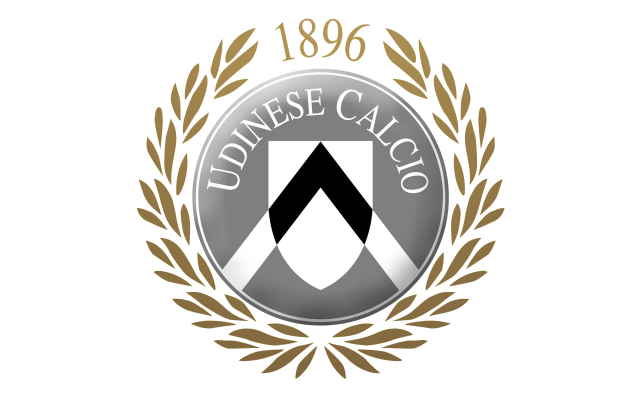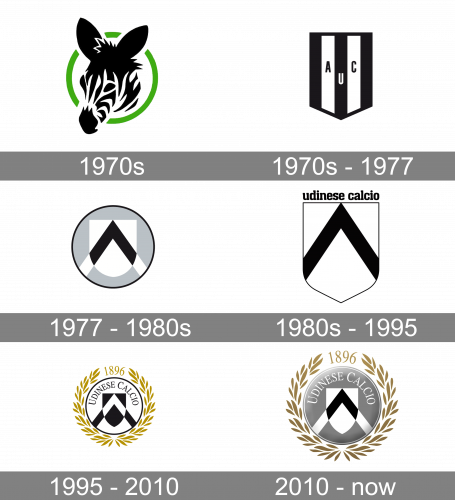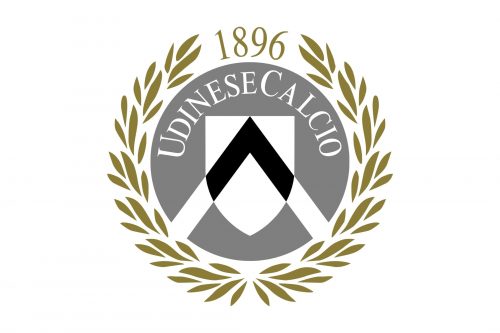The logo of the Italian football club Udinese Calcio has a long and fascinating history, like the team itself. Udinese FC, which was established in the city of the same name in 1896, is the country’s second oldest club, after Genoa.
Meaning and history
Udinese Calcio, an Italian football club based in Udine, Friuli-Venezia Giulia, was founded on November 30, 1896, by a group of students. It is recognized as one of the oldest football clubs in Italy. The club initially participated in regional competitions, gradually ascending through the ranks of Italian football.
Udinese’s most notable achievements include a strong presence in Serie A, Italy’s top football league, and their remarkable performance in the 1997-98 UEFA Cup, where they reached the semifinals. Additionally, they have consistently produced and nurtured exceptional talents, many of whom have progressed to major European clubs and national teams. Their ability to scout and develop young talent has been a cornerstone of their strategy. In recent years, Udinese has faced various challenges but has managed to maintain a stable position in Serie A, showcasing resilience and adaptability. The club continues to be a significant part of Italian football, with a dedicated fan base and a legacy of contributing to the sport nationally and internationally.
What is Udinese Calcio?
Udinese Calcio is a professional Italian football club, renowned for its long-standing presence in Serie A and its history of developing young talents. As a pillar of Italian football, the club balances between fostering new players and competing at high levels.
Early 1970s
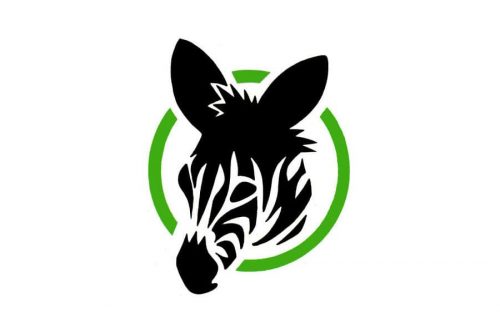 One of the earliest known logos (the early 1970s) was based on the letters “ACU” (the initials of the old name of the club, Associazione Calcio Udinese).
One of the earliest known logos (the early 1970s) was based on the letters “ACU” (the initials of the old name of the club, Associazione Calcio Udinese).
1970s – 1977
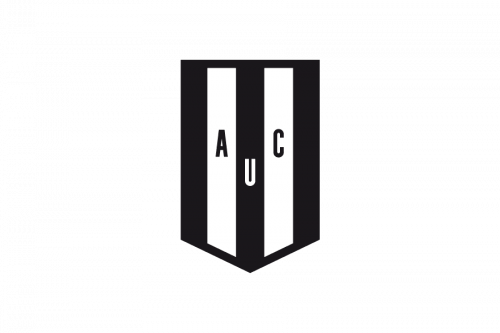
The Udinese logo, used in the 1970s, was super strong and modern. It was a sharp and strict crest with a vertically striped black and white background and only three letters — “A”, “C” and “U”. The first two were executed in black and set on the white stripes of the crest, while the “U” in white was set on the middle black stripe. All symbols were written in the same bold and slightly narrowed sans-serif typeface, which looked progressive and stylish.
1977 – 1980s

The redesign of 1977 introduced a new abstract geometric badge, which was used by the club for another few years. It was a light gray circle in a black outline with a white rounded crest placed in the center and a black and white chevron pointing up and set over the crest. The elegant and timeless gray, white and black tricolor and the diversity of geometric figures made this Udinese logo truly amazing and progressive.
1980s – 1995
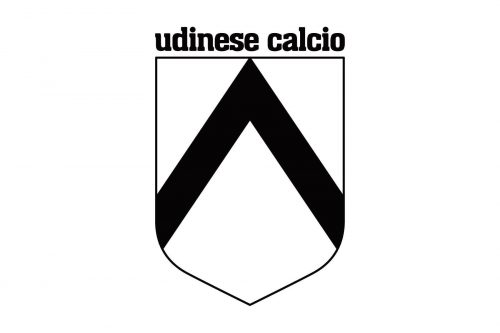
However, in the middle of the 1980s, the stylish circular badge of the football club was redesigned. Not the logo turned to a white crest in a thin black outline with the black chevron having its sharp peak looking up as the main element. The lowercase “Udinese Calcio” inscription in a bold and smooth serif typeface was written in black above the crest. The font of the inscription featured softly rounded lines and massive square serifs.
1995 – 2010

With the redesign of 1995, the circular badge came back to the Udinese visual identity. The light gray color was gone now and the whole composition was executed in a black and white color palette. The circle with an arched uppercase “Udinese Calcio” inscription in an elegant serif, was enclosed into a sophisticated gold leafy wrath with the “1896” datemark on its upper point, replacing the traditional crown.
2010 – Today
The emblem that followed looked even more like the city crest – it borrowed its most prominent element, the black “mountain.” Initially, the mountain was positioned inside a white shield shape, which, in its turn, was placed in a grey circle with a black frame.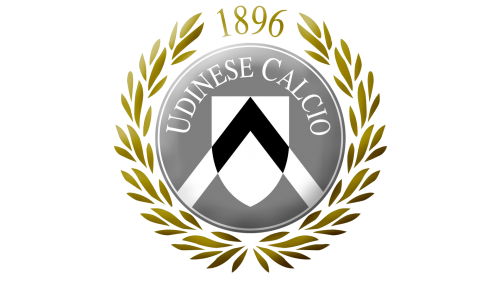
On the 2010 Udinese logo, a grey gradient and a gold laurel wreath could be seen.
Udinese Colors
BLACK
PANTONE: BLACK 6 C
HEX COLOR: #000000;
RGB: (0, 0, 0)
CMYK: (0, 0, 0, 100)
WHITE
PANTONE: P 1-1 C
HEX COLOR: #FFFFFF;
RGB: (255, 255, 255)
CMYK: (0, 0, 0, 0)
GOLD
PANTONE: 7755 CP
HEX COLOR: #8B7D37;
RGB: (139, 125, 55)
CMYK: (44, 41, 94, 15)
GREY
PANTONE: 8401 C
HEX COLOR: #7F7F7F;
RGB: (127, 127, 127)
CMYK: (52, 43, 43, 8)


